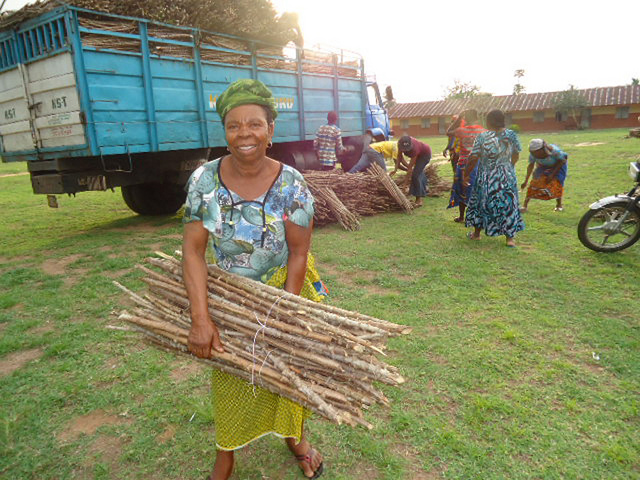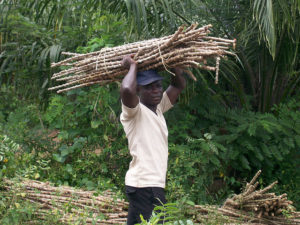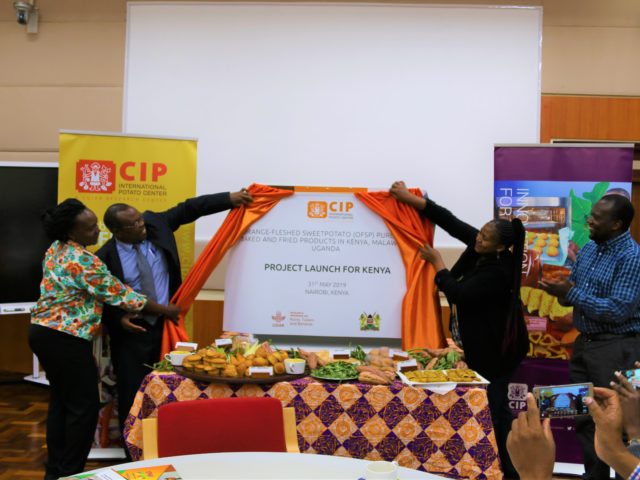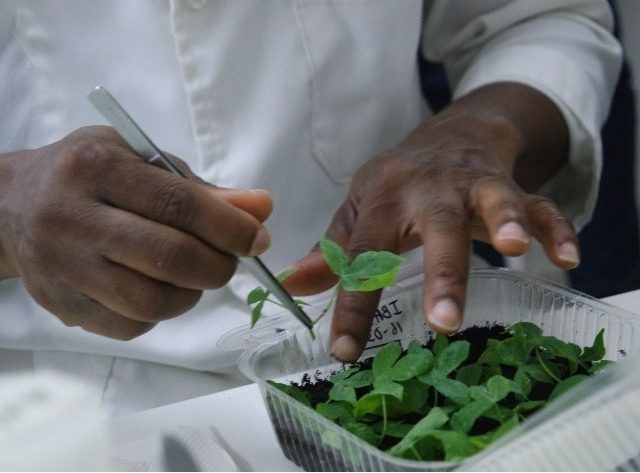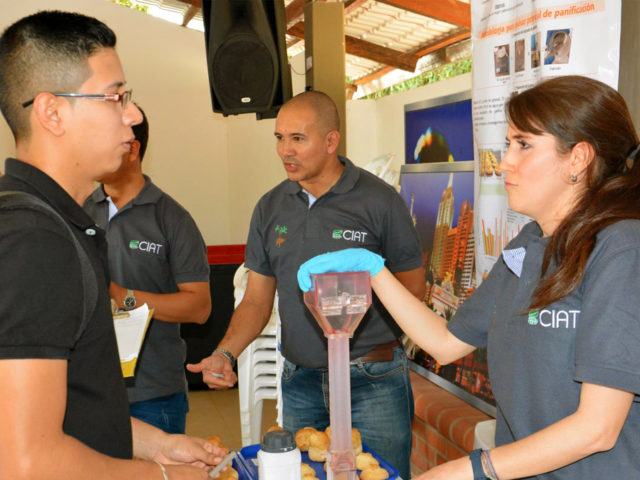A new competition is calling for innovative packaging designs to sell bundles of high quality cassava stems in Nigeria.
The competition has been launched by the ‘Building an Economically Sustainable, Integrated Seed System for Cassava in Nigeria’ (BASICS) project, which aims to develop a sustainable cassava seed value chain in Nigeria, based on the commercial production and dissemination of improved cassava planting material.
This seed value chain will serve as a vehicle to deliver better quality and more productive cassava varieties in order to improve productivity and food security, increase incomes of cassava growers, processors and village seed entrepreneurs, and enhance gender equity in Nigeria.
Currently, most cassava farmers use the stems from their own farm for planting or buy stems of dubious quality from the local market. To sustainably and significantly change farmers’ behavior to buy improved and quality certified stems, at least two things need to happen:
- The improved variety stems need to result in the farmers getting higher cassava production and ultimately translate that into higher net incomes, consistently, meaning that the variety needs to meet the contextual market demand. (Substance)
- The improved stems need to be presented well, packaged well and they need to result in a visibly improved crop stand in the farmers’ fields. (Style)
While the ‘substance’ is of greater importance in long term success, the ‘style’ is important to get the attention of the market to influence the initial buying behavior and hence is a vital part of marketing of any new product or service.
This competition invites innovative ideas for the ‘style’ or presentation of the cassava stems. Participants should submit their proposal in maximum of three pages on how to make a bundle of improved/certified cassava stems more marketable to farmers on a large scale.
Entries must include the following:
- Your contact details and a brief profile
- Cassava stem bundle treatment, packaging, labeling and handling proposal
- Overall additional cost per bundle of 50 one-meter stem cuttings (you can make explicit assumptions to get reasonable economies of scale)
- What attributes brought about through your proposal do think will entice the farmers to pay the higher price to buy your bundle of stems and come back as a repeat buyer or become an advocate for it?
Eligibility
Any individual or a group of individuals or an institute who has the ability to demonstrate the proposal in Nigeria is eligible to participate.
Reward
- $1,000 cash prize for the best proposal
- A Certificate Of Appreciation for the TOP THREE proposals signed by the Program Director, CGIAR Research Program on Roots, Tubers and Bananas (RTB) and Deputy Director General for Research, IITA
- $5,000 award for implementing a pilot project of the proposal as a part of the BASICS project. (only if the committee feels the technology/proposal is mature enough to be piloted)
Judging criteria
Entries will be judged based on attractiveness of the proposed presentation of the stems in the eyes of various stakeholders, practicality of the proposal, on ease of availability of additional inputs being suggested, ease of handling of the bundle, tamper proof certification tagging of the bundle, overall cost and value for money considerations.
Important note
Please note that this is not a research proposal. It is expected that you would have experimented and come up with something that is now ready to be tested on a commercial pilot level. Or it could be a proven native knowledge that has been lost to the world and is waiting to be rediscovered. There could be ideas that improve the packaging of the stems and improve ease of handling, there could be methods for improving the look and feel through some low cost dyeing of the stems or some nutrient/fungicide dips to improve the crop establishment in the field. Your proposal could address just one or multiple issues at the same time and the most commercially viable proposal will be picked.
Submissions
The entries should be submitted in the format mentioned above and should not be more than three pages long. The committee may seek more information at an appropriate time, if required.
Entries should be emailed to h.nitturkar@cgiar.org by July 25, 2016.
